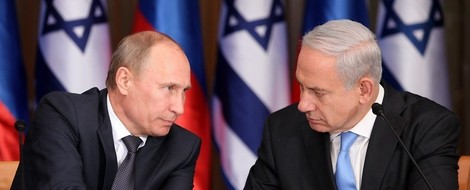Your podcast discovery platform
Curious minds select the most fascinating podcasts from around the world. Discover hand-piqd audio recommendations on your favorite topics.

piqer for: Globalization and politics Global finds
Neil Hauer is an independent analyst focused on Syria, Russia, and the Caucasus. Based in Tbilisi, Georgia, he served as senior intelligence analyst at The SecDev Group, an Ottawa-based geopolitical risk consultancy, for three years. He is presently engaged primarily on Russia’s role in the Syrian conflict.
The "Syrian Test" For Russia And Israel
Relations between Russia and Israel have faced one of their most significant challenges ever in the Syrian conflict. Despite Israel's unquestioned status as one of the closest allies of the United States, Moscow and Tel Aviv have always maintained close links. The potential fall of Syrian leader Bashar al-Assad posed a challenge to Israel as well as Russia, with the Jewish state fearing chaos or Islamist jihadists on its doorstep. However, Israel was also unwilling to accept its arch-rival Iran establishing bases in Syria or transferring weapons to the Lebanese militia Hezbollah.
Until 2018, Russia and Israel had a "gentleman's agreement," whereby the former would not interfere when the latter launched airstrikes on Iran, the Syrian regime, or Hezbollah positions. In recent months, however, this changed: increasingly aggressive Iranian posturing has led Israel to launch airstrikes more frequently and on a greater scale.
The author, Mirzayan, claims that this has upset Russia in turn, which is now considering providing the Syrian government with more potent anti-aircraft defences. The author then suggests a number of compromises that could de-escalate the situation: He judges a full-scale Israeli military operation to be unlikely, due to the effort required and difficulties it would cause with Russia. Israel could also attempt to convince the US to launch strikes on Iranian positions instead, but it is unlikely Washington has the appetite for such a policy. Diplomatic tools, such as aligning with Saudi Arabia and other anti-Iran Gulf countries, could aid Israel's position but will not change Iran's calculus. A final option could be to negotiate a new "gentleman's agreement" with Russia to restrain Iran – but Israel will have to make concessions to Russia in turn, and, the author fails to note, it is entirely unclear (and indeed unlikely) that Russia could enforce such guarantees regarding Iran.
It is difficult to see how the "next big war" in the Middle East can be prevented.
